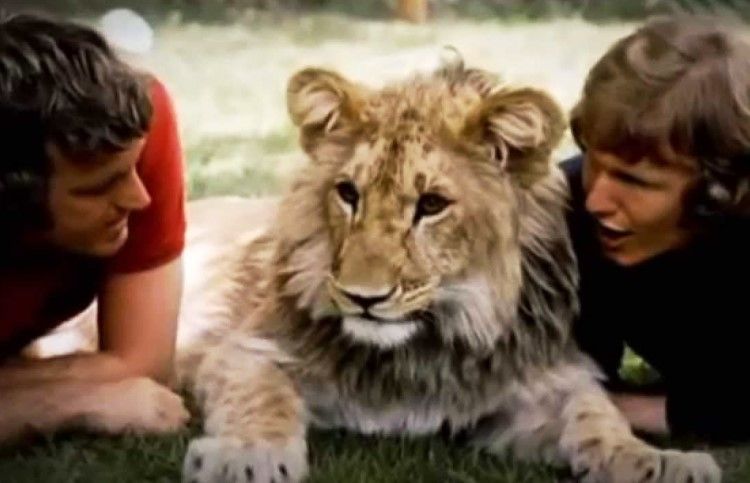There were always cats in our house when I was growing up. First Klondike, whom we adopted when I was five years old, and then Milo, who joined us five years later. To me, my mom and my sister, the joy of having cats around was unquestionable. Who didn’t love a purring feline? My dad, for one. He grumbled that they scratched the furniture, among other complaints. If we pointed out how affectionate they could be, how attached they were to our family, he would say, “It’s just because you feed them.”
Any pet parent would argue otherwise—but how do we really know? Is their affection nothing more than a response to the sound of the can opener cracking open some Fancy Feast?
READ MORE: INSPIRING ANIMAL FRIENDSHIPS
You may have heard the famous true story of Christian the lion, born in a British zoo in 1969, rejected by his mother, and then raised from a tiny cub by two furniture salesmen, John Rendall and Anthony “Ace” Bourke, in their London apartment. They established a safe and loving rapport with Christian not by becoming his “master” and taming him, but by treating him as their equal, as if they were all in one pride, roaming the streets of London and an enclosed garden nearby. The cub would show his affection by leaping on top of them and putting his paws on their shoulders, “hugging” them.
Christian grew, as lions do. His instincts called him to roam the vast African savanna, not a quaint English garden. One day a couple came into the furniture store: Bill Travers and Virginia McKenna, actors who had played the Kenyan conservationist George Adamson and his wife, Joy, in Born Free, a movie about returning a lion to the wild. The actors inspired John and Anthony to reach out to Adamson and arrange for Christian to be introduced into a pride in Kenya’s Kora nature preserve. The two men said a tearful goodbye to their friend.
A year later, John and Anthony visited the preserve to see Christian, against Adamson’s advice and despite his warning that the lion would likely have forgotten them. The documentary Christian the Lion shows what happened when John and Anthony arrived at the sanctuary and called Christian’s name: the beast turns and stalks toward them, slowly at first, then breaking out into a run. Instead of ripping them to shreds, he stands up on his hind legs and wraps his enormous front paws around them, knocking them over, nuzzling them, just the way he used to as a cub in their London flat.
READ MORE: ONE PENGUIN’S AMAZING JOURNEY
Which brings me back to Klondike. When I was 15, Klondike disappeared. I delivered newspapers early every morning, and usually the cats were already awake, milling around their bowls, waiting to be fed. This particular day, Milo was waiting, but Klondike was nowhere to be found. Mom and I frantically searched the house.
We were on the verge of panic when I decided to see if he’d gotten outside somehow overnight. I opened the front door, and there he was. Not outside, but behind the screen door. All night, he’d been trapped in that small space. I picked him up and he immediately hugged me with his paws, like a miniature version of Christian the lion. I could feel his heart beating and his relief that he was reunited with his family, and I wished there was a way to tell him I was sorry for not paying closer attention when we’d locked up the night before. This was certainly his most “human” moment; it went beyond some sort of learned dependency he had on us. This incident seemed pretty clear proof that Klondike could feel real emotions for us, beyond his elation at the sound of the can opener.
Could this love be an expression of divine love, a love so vast and universal that it pervades every living thing, to one extent or another?
After all, love knows no division between species, and asks for nothing in return. My family doesn’t love my dad only because he feeds us.






